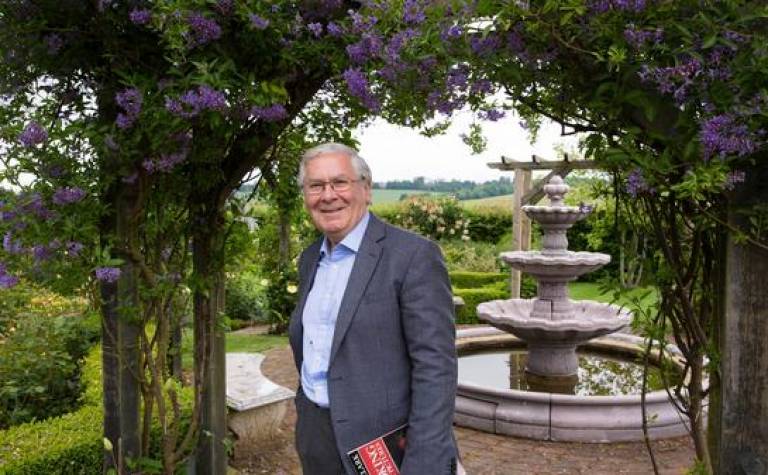Global Economic Governance in the Shadow of Radical Uncertainty
8 August 2016
Robert Rix (GGI Research Assistant) on a GGI keynote lecture with Lord Mervyn King, former governor of the Bank of England.

The Global Governance Institute welcomed an illustrious guest in Mervyn King, former governor of the Bank of England during the financial crisis. He treated the audience to his invaluable insights into the state of the global economy, the problems within economics as a discipline, and how these relate to some of the major governance challenges of our time.
King began by introducing the concept of radical uncertainty, explaining that our current understandings of economics and finance simply do not account for the degree of uncertainty that is an unavoidable fact of the real world. The desire of economists to mirror the certainties of the natural sciences has led to attempts to model human behaviour along similar lines, with predictive analysis premised on optimal choices taken by rational decision-makers. The problem with this is that what constitutes optimal behaviour under conditions of radical uncertainty is unclear. Therefore, economic models based on assumptions of rationality and optimisation are inappropriate when trying to understand the real world under such conditions.
King illustrated this point by highlighting the difference in predictive power between meteorologists and economists; while weather forecasting has improved in line with advancing computational technology, the same cannot be said for the notoriously unreliable predictions of economists. The reason is that meteorologists' predictions are based on unchanging natural laws, while economic and financial markets are driven by expectations that do not take into account unexpected and unpredictable changes.
King advocates an interdisciplinary approach to studying the economic and social world, bringing together insights from all social sciences to understand how people deal with the problem of making difficult decisions in conditions of radical uncertainty. This approach mirrors the stance of the Global Governance Institute and the atmosphere of academic inquiry we aim to foster at UCL of encouraging dialogue between disciplines and pooling our collective understanding in order to create innovative solutions to today's major problems.
King moved on to discussing an intractable trilemma of global economic governance: the incompatibility between democracy, national sovereignty and economic integration. This problem is demonstrated by the difficulties of the Eurozone, in which decisions necessary for successful economic integration lack consent from domestic populations and thus, democratic legitimacy.
Resolving the tensions between these fundamental aspects of modern political life without creating social conflict in an increasingly globalised world requires open and honest debate. Deep concerns about the fairness of the economic system have been compounded by big bank bail-outs using public funds. The rise of extreme political parties, particularly in Europe, is a worrying foreshadowing of what is to come if these deep tensions in our economic governance go unresolved.
Cooperation between governments represents another key feature necessary for effective governance in an integrated world. King describes how the lack of an effective mechanism to coordinate policies created a "prisoner's dilemma" between governments. This situation inhibited appropriate systemic responses to the global trade imbalances that contributed to the 2008 financial crisis. King argues that a central mission for the international community is to foster conditions in which trust is established between nations, so enabling cooperation mechanisms to function successfully.
This will not be an easy task. Even if we reject egoistic and anarchic assumptions about the nature of the international system which have previously dominated the study of international relations, conceiving of a global system for economic governance based on trust and cooperation requires an optimistic outlook. What's more, the contemporary system is defined by multi-polarity and the rise of "the BRICS" has been accompanied by an increase in geopolitical tensions, while the European project looks increasingly in danger of unravelling. Under such circumstances the prospects of trust and cooperation prevailing as fundamental features of the international system might appear slim.
However, even in this context we have seen notable examples of cooperation. The recent Paris conference on climate change represented a significant improvement on previous agreements, perhaps signifying that cooperation can emerge when the stakes are high enough, and there is a consensus on the necessity for collective action. Nevertheless, the kinds of governance recommended by Mervyn King will undoubtedly require creativity and innovation from policy practitioners and academics alike. His call to shun narrow intellectual silos and embrace collaborative thinking and big ideas is exactly the approach we cultivate at the Global Governance Institute, and should be taken as a rallying call for all those interested in tackling the biggest challenges in global governance today.
 Close
Close


